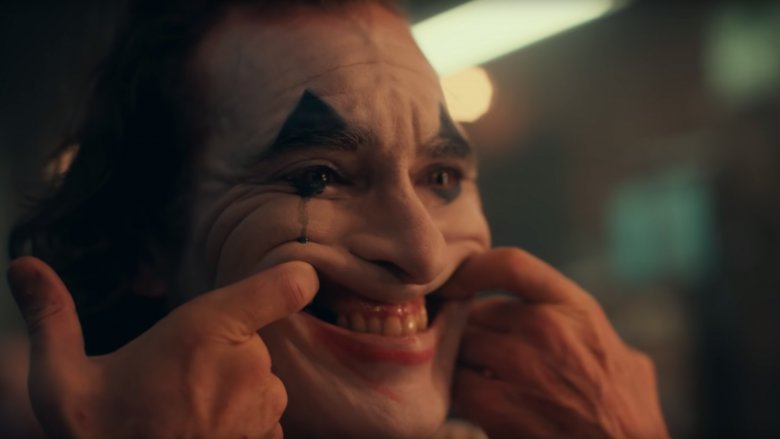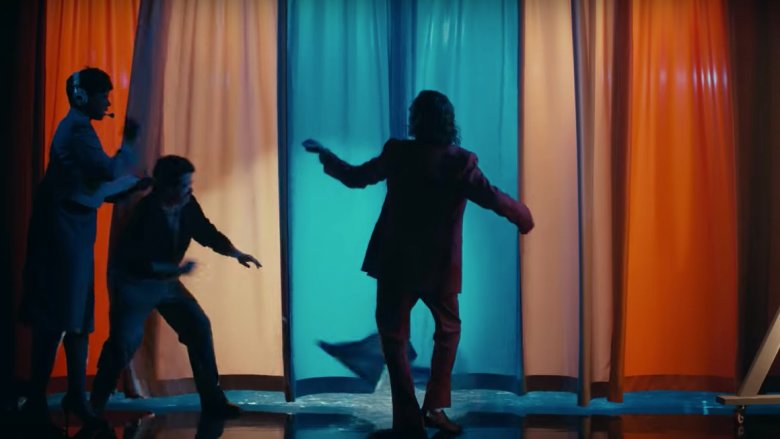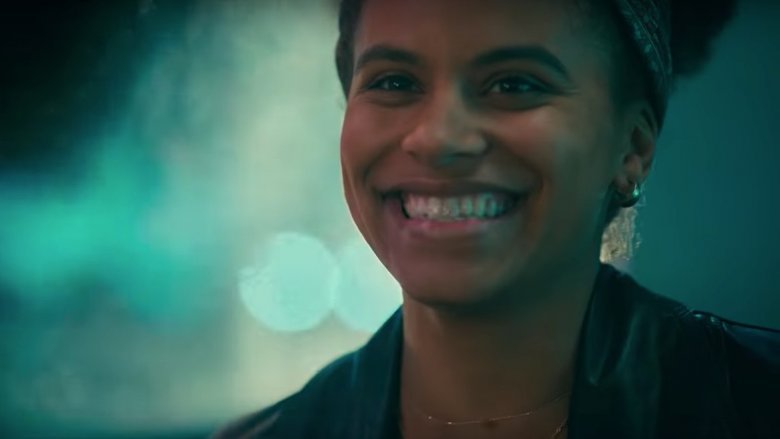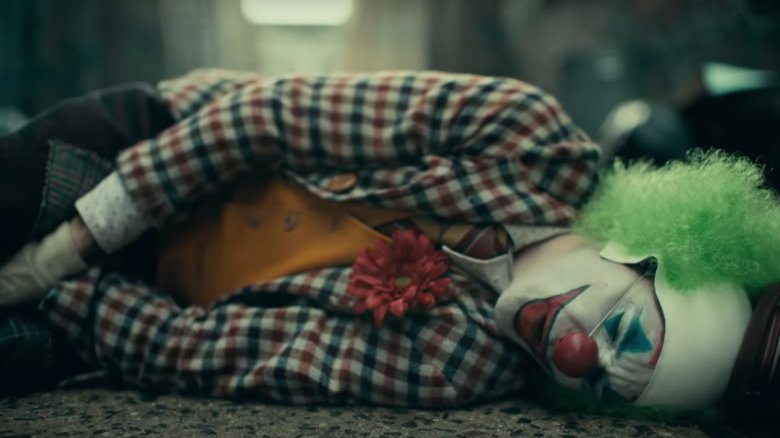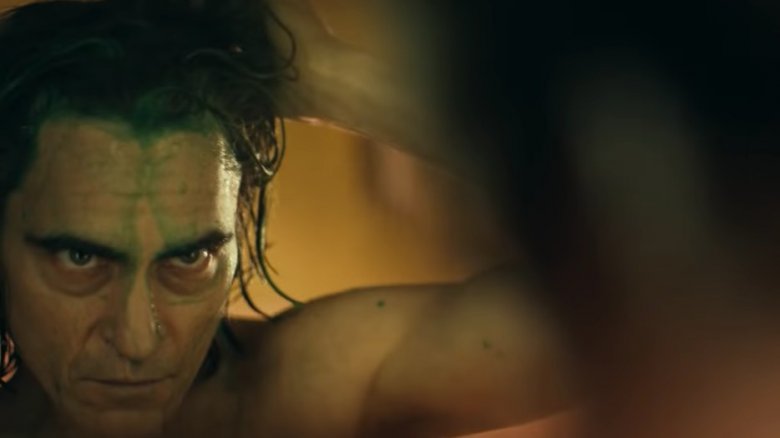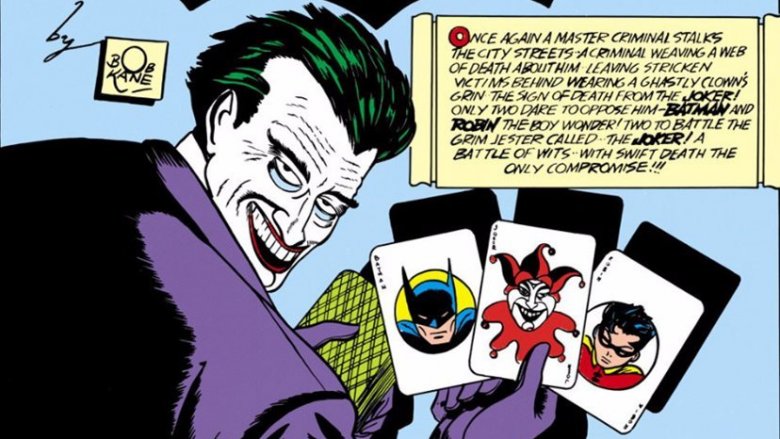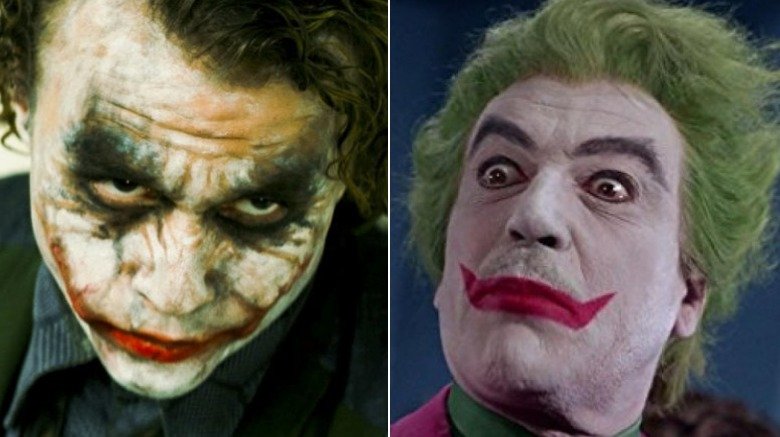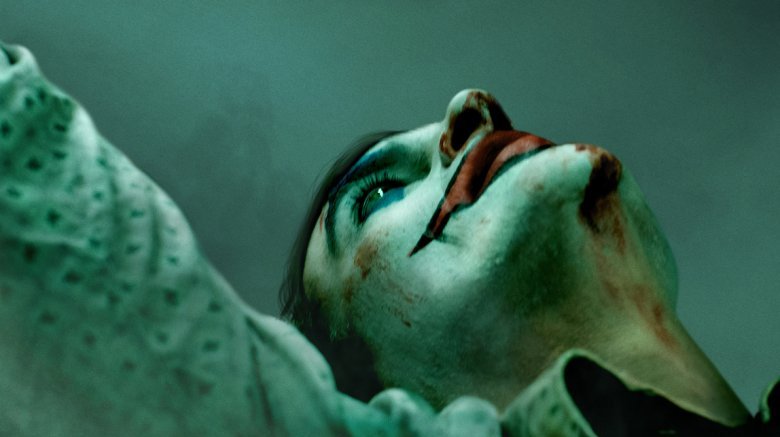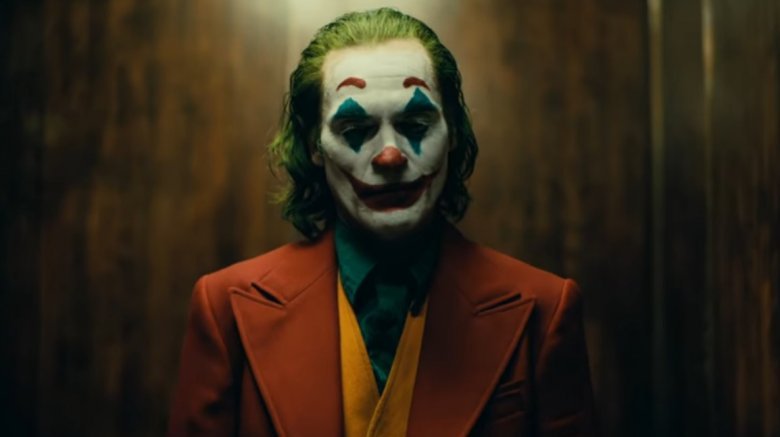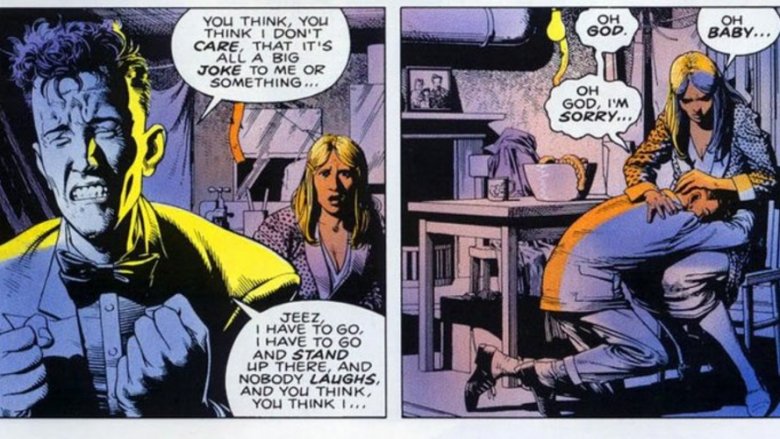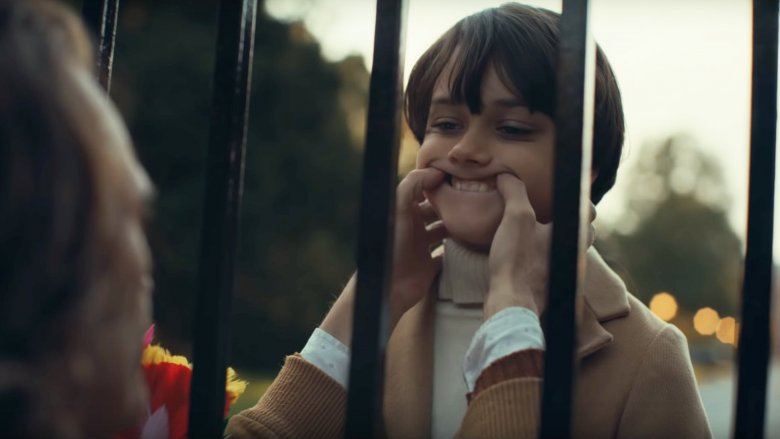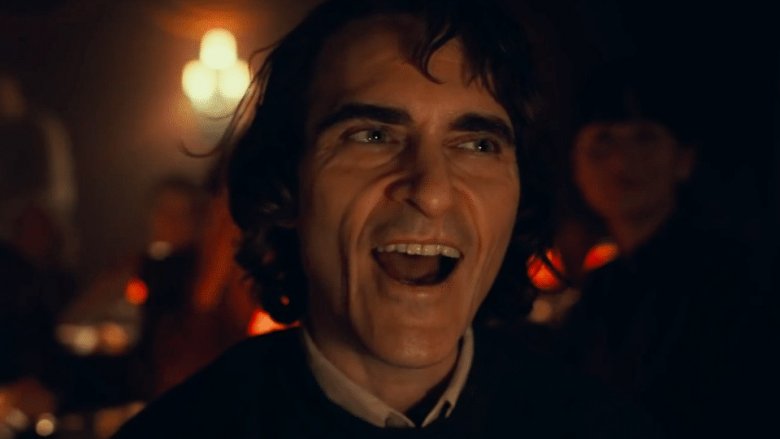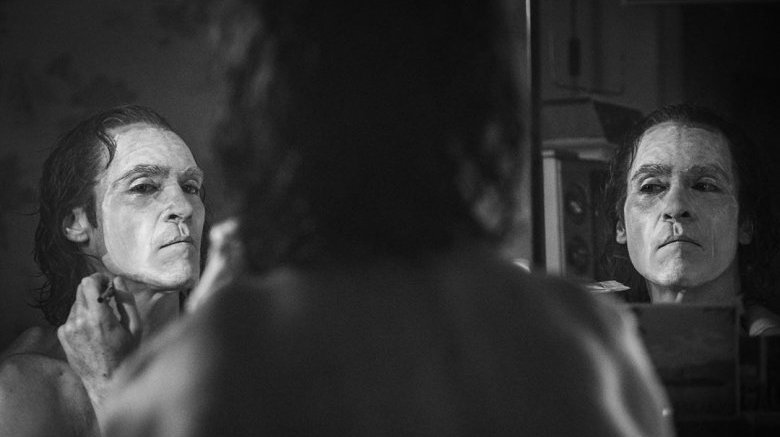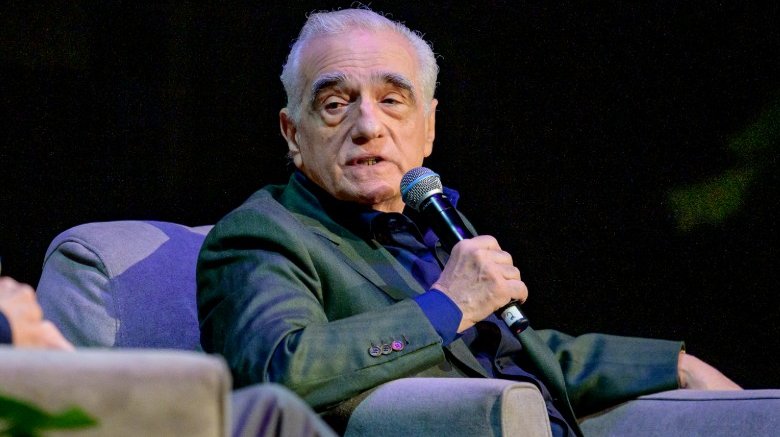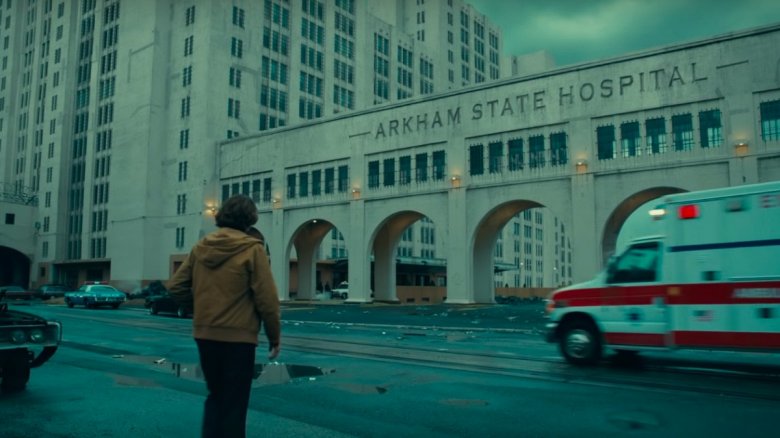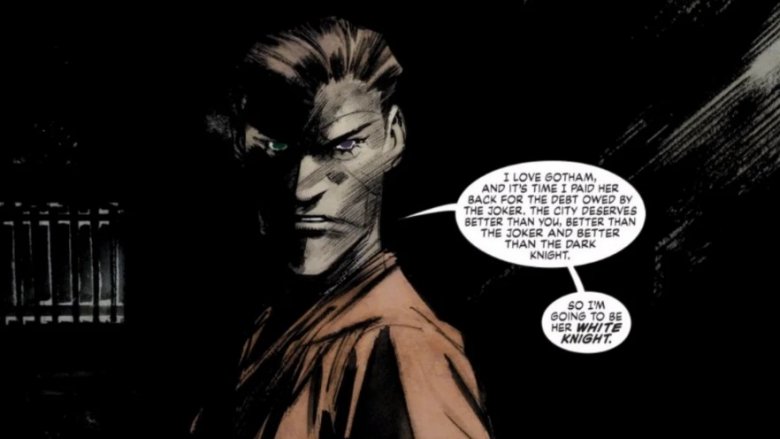The Joker Movie Release Date, Cast, Trailer And Rating
Deadline reported in August 2017 that Todd Phillips — known for directing and co-writing 2016's War Dogs as well as the first two movies in the Hangover series — was working on a movie that would act as a Joker origin story, with legendary director Martin Scorsese initially attached as producer. Now, almost two years later, Joker is making its way to theaters, and the first official teaser trailer for Joker gave us a peek at something that looks nothing like any stories adapted for the big screen from DC or Marvel Comics.
Starring Joaquin Phoenix as failed stand-up comic Arthur Fleck, Robert De Niro as talk show host Murray Franklin, and Zazie Beetz as Arthur's love interest Sophie, Joker promises to show us exactly how a man could descend into the kind of psychosis that would lead him to become the twisted mass murderer we all know as the Joker.
From what we know about Phillips' plans, audiences going to see Joker won't need to read any comics beforehand or see any other films the character's appeared in. They won't need to know any geek trivia to appreciate or understand the story. But considering how singular Phoenix's interpretation of the character promises to be, it's probably a good idea to know a little bit about this character's long media history in order to appreciate what's different about his depiction this time around. Here's everything you need to know before watching 2019's Joker.
Joker's release date
Joker arrives in theaters the first Friday in October — Oct. 4, 2019. As far as considering competition is concerned, it's a date that was chosen well. The only other major motion picture scheduled to come out that weekend may star Benedict Cumberbatch and Tom Holland, but it's no Marvel movie. Cumberbatch and Holland will appear in the historical drama The Current War about the competition between Thomas Edison (Cumberbatch) and fellow electrical pioneer George Westinghouse (Michael Shannon). It seems unlikely a historical drama will pull many sales away from Joker. No major superhero/comic book movies will release that month, the month before, or the month after, giving Joker a relatively free field of play.
It's possible the Joker release is a big part of why we won't be able to see Wonder Woman 1984 until 2020. The sequel to Wonder Woman was original scheduled for release in Dec. 2019, but the debut was pushed earlier to Nov. 2019. Then, in Oct. 2018, it was announced that the release for the sequel had been pushed later to June 2020. There could be any number of reasons for the change, but one obvious one is that if the Nov. 2019 date had been kept, Joker and Wonder Woman 1984 would be released within less than a month of one another and could possibly find themselves in competition.
The cast of Joker
We all know Joaquin Phoenix will be Joker's lead, though some fans theorize we'll eventually learn Arthur Fleck isn't the "real" Joker. But there are plenty of other names, both large and regular-sized, rounding out the rest of the cast.
Appearing as Thomas Wayne is Brett Cullen, a distinguished character actor with a long career in Hollywood beginning in the '80s. In fact, Joker will be Cullen's second Batman-related film — he plays a congressman in 2012's Dark Knight Rises. Frances Conroy plays Fleck's ailing mother Penny. Conroy's shown up in Arrested Development and American Horror Story in recent years, though she's perhaps best remembered for her role as Ruth Fisher in HBO's Six Feet Under. We see Zazie Beetz briefly in the Joker trailer. Fans will likely remember Beetz's performance as Domino in 2018's Deadpool 2. In Joker she plays Sophie Dumond — a single mother and Fleck's love interest.
One of the most interesting casting choices is that of Robert De Niro as talk show host Murray Franklin. Fans and critics are speculating Joker will in many ways be strongly influenced by Martin Scorsese's 1982 The King of Comedy. De Niro plays a struggling, mentally ill comic in that film, just as Phoenix plays one in Joker.
The young Bruce Wayne we see Fleck forcing to smile with his fingers in the trailer is played by Dante Pereira-Olson, and it won't be the first time he's worked with Phoenix. Pereira-Olson was in You Were Never Really Here where he played the younger version of Phoenix's character — Joe, a traumatized veteran.
The trailer for the Joker got comic fans smiling
In early April 2019, the teaser trailer for Joker dropped, set to Jimmy Durante's "Smile" — a tune that casts a much more chilling vibe in a trailer about Batman's greatest villain than Durante probably would've expected.
The trailer gives us a snapshot of Arthur Fleck's life. Fleck speaks to a therapist, riding an elevator in Arkham State Hospital, and writes crazily on a pad of paper — we know he struggles with mental illness. We see him working as a sign spinner where he dresses like a clown, and then we see him beaten in an alley by muggers and later on a subway by young, seemingly drunk businessmen. We watch him care for his mother and briefly see him sitting with Sophie, who makes him beam. Fleck leads some kind of political uprising. Clown-masked Gothamites clash with police, detectives chasing Fleck in a subway, and Thomas Wayne calls him out on TV.
Of course, the trailer has inspired the customary hunt for Easter eggs; though the hunt has turned up relatively little in terms of comic book fodder. The young Bruce Wayne was easy enough to spot that calling it an Easter egg seems generous. The only other potential comic book Easter egg fans identified was an easy-to-miss green question mark in an elevator shot presumably in Arkham, which some fans are taking as a sign that Edward Nygma, a.k.a. The Riddler, may show up somewhere in Joker.
What is Joker rated?
As for the film's rating, Joker is joining the short — but growing — list of movies adapted from the comic book superhero world to be rated R. Director Todd Phillips confirmed the rating on Instagram, writing, "It will be Rated R. I've been asked this a lot. Just assumed people knew. Sorry."
Considering the movie is based on a comic book character, it's understandable that Phillips was asked this question a lot. But on the other hand considering the subject matter his assumption that fans knew the rating isn't surprising. We might not know all the plot details yet, but we know the film's protagonist eventually becomes one of the most brutal and prolific fictional murderers of popular culture. Even in relatively kid-friendly treatments like 1989's Batman and the Batman: The Animated Series of the '90s, the Joker is a murderer. He poisons people, electrocutes them, and feeds them to wild animals, among other things. Take away the comic book superhero association for a moment and ask yourself: if you saw an ad for a movie about a serial killer, would you bother going if it was rated PG-13?
Who is the Joker?
Along with being one of comics' most popular villains, after close to 80 years of appearing in comics, cartoons, video games, and live-action television series and films, Joker remains one of the most enigmatic comic book characters.
Sometimes his bone white skin and green hair are the result of an accident, usually a fall into toxic chemicals, as it is in most DC Comics as well as 1989's Batman film. Other times, such as 2008's The Dark Knight and the upcoming Joker, his clownish appearance is the result of make-up and hair dye. Wherever they come from, however, his white skin, his chilling smile, his usually green hair, and often purple garb are relatively constant. And of course, there's his laugh. The laugh is always different. Mark Hamill's laugh in Batman: The Animated Series is certainly not the same as Heath Ledger's in The Dark Knight, but the laugh is always distinct, manic, and hints more at sadism than joy.
Usually, including in his earliest appearance in 1940's Batman #1, the Joker is a mentally ill killer without a shred of conscience. One of the only exceptions is Cesar Romero's portrayal of the character in the campy '60s Batman series, who was pretty much just a bank robber who laughed a lot.
The Clown's Legacy
In spite of the negative comparisons to previous actors that arise with every new Joker casting, the character has been played by so many different actors that the idea that any single actor could be the only "true" Joker is as insane as the Joker himself.
Cesar Romero's version was much lighter than most live-action interpretations, with his costume and make-up seeming more like goofy criminal branding than symptoms of psychosis. The most recent actor to play a live-action television version of the character was Cameron Monaghan, who viewers get to see grow into his role from Jeremiah to Joker in the recently concluded Gotham.
Jack Nicholson was the first to play Joker in a live-action film as a remorseless murderer, but his performance is still infused with irresistible humor. Heath Ledger is arguably the one to most closely resemble a real-life person who suffers from severe mental illness, with his voice and mood often changing abruptly if provoked and caring less about money than most incarnations. Jared Leto's brief time in Suicide Squad is infused with more sex and the character seems as much of a pimp as he does a serial killer.
Plenty of voice actors have had their turn at the Clown Prince as well, most notably Mark Hamill of Star Wars fame. Hamill first voiced the Joker in Batman: The Animated Series which premiered in 1992, as well as a number of animated films and three of the hugely successful Arkham Asylum video games.
Joker, all by his lonesome
One of the first questions on fans' minds when Phoenix's casting as the Joker was announced was: what happened to Jared Leto? At one point there were no fewer than six Joker or Joker-related films in development with Leto still attached for some of them. How could Leto and Phoenix play the same role? Was Warner Bros. just replacing Leto and being coy about it?
The answer: Leto's Joker and Phoenix's Joker aren't the same guy. The Joker of 2019 will not be part of the DCEU — it's a standalone film and has nothing to do with Suicide Squad, 2017's Justice League, 2021's The Batman, or any other DCEU films. This may have something to do with why Phoenix accepted the lead in Joker. Joker isn't the first comic book character he's been up for. He came close to playing Doctor Strange, turned down the role of Superman nemesis Lex Luthor, and recently we reported Phoenix auditioned for the part of the Red Skull in 2011's Captain America: The First Avenger.
One difference between those roles and the role of Joker is that signing up for Lex or Strange would have obligated Phoenix to appear in other movies. Phoenix has never been specific about why he bowed out of Doctor Strange, though in 2015 he did say "[t]here were too many requirements that went against my instincts for character." One of those requirements could have been the contractual obligation to appear in other films.
What's in a name?
One of the things we already know makes this Joker distinct in the character's treatment is that we're actually learning the name he was born with — Arthur Fleck.
It isn't the first time a writer has given the Clown Prince of Crime a proper first and last name. In both Tim Burton's Batman and the 2017 comic Batman: White Knight, Joker is known as Jack Napier. In Fox's Gotham, the Joker is Jeremiah Valeska. But in most interpretations of the character, in most mediums, Joker goes unnamed. Even in Batman: The Killing Joke — a 1988 graphic novel by Alan Moore and Brian Bolland that includes a Joker origin story — in all of the flashbacks to Joker's past we never learn so much as his first name. Director Christopher Nolan plays with this mysterious background in The Dark Knight, having the Joker offer multiple contradictory explanations for the horrible scars on his face and eventually failing to reveal which story — if any — is true.
The Killing Joke
Joker doesn't seem like an adaptation of any single Batman or Joker comic. However, there are glimmers of inspiration from specific stories. At least one aspect of Joker is similar to one of the most well-remembered and influential Joker stories — 1988's Batman: The Killing Joke.
Written by Alan Moore — famous for Watchmen, V for Vendetta, and other comics — and drawn by Brian Bolland, The Killing Joke is memorable for many reasons, one of which is the origin story given to the Joker. We never learn his name, but the younger Joker is an aspiring stand-up comic who can't get a break. No one laughs at his jokes, he isn't making any money, and his young wife has a baby on the way. Desperate, he agrees to go on a heist with some crooks and falls into a vat of chemicals that turn him into the villain we all know.
Like this unnamed young Joker, Arthur Fleck in the Joker film seems to be a failed comic. That, for the most part, seems to be where the similarities end. It doesn't seem to be any fall into chemicals that drives Arthur Fleck. From what we've seen of Joker, Fleck seems to be a man driven to and beyond the brink by the madness of society, not because he fell into green stuff.
Don't expect Batman to fight the Joker
Whether you're talking about Michael Keaton, Christian Bale, Ben Affleck, or even Robert Pattinson, don't expect Batman to show up in Joker. At least not in costume, or even having reached puberty.
Bruce Wayne will be in Joker, but he won't be wearing any costumes unless he's trick-or-treating. A young Bruce appears in the first trailer for Joker as Arthur Fleck reaches through the bars of what's presumably the gate leading to Wayne Manor to make a smile out of Wayne's mouth with his thumbs. We also know Bruce's father Thomas Wayne will appear in the film, and in the trailer we see the Wayne Enterprises CEO referring to Joker as a coward on television.
Whether or not we'll see much of the Waynes — including the murder that kicks off Batman's own origin story — remains to be seen. But one thing is clear: don't expect to see Joker and Batman trading blows in a bell tower. Not going to happen.
The Joker in the era of Reagan
Though it isn't a part of the DCEU, Joker has at least one thing in common with the upcoming Wonder Woman 1984 — it's set in the '80s. Which leads to the question of exactly why Phillips places the story in that decade. One reason may be that, as Variety reported in July 2018, the film is apparently influenced by Martin Scorsese's 1982 cult classic The King of Comedy.
Another possible reason is that most of the '80s belonged to the era of Ronald Reagan, the 40th President of the United States, who served in the Oval Office from 1981 to 1989. When he left office, Reagan enjoyed one of the highest approval ratings of any departing president. Regardless, not everyone is happy with Reagan's legacy, and many of his critics would claim that his time in office should be remembered for a widening gap between rich and poor as well as an increase in homelessness.
From what we see in the trailer for Joker, there seems to be some political unrest in this movie's version of Gotham City. That Fleck seems to be a failed comic suggests we'll be seeing a struggle involving the proverbial little guy. A time when the rich got richer and the poor got poorer seems like a perfect era to examine an underdog like Fleck.
Joker: Not your usual comic book movie
Joker is no superhero movie. Every interview revealing any details about the film points to something completely separate from what we're used to from comic book adaptations. Speaking with Collider, Phoenix praised Phillips' "interesting understanding" of the world of the Joker and described the movie as being "unique... it is its own world in some ways."
Actor/comedian Marc Maron, who is known for criticizing superhero flicks, appears in Joker. Like Phoenix, he called the movie "a very interesting approach to this world." He went on to describe it as "a character study of a mentally ill person" as well as an "intimate and gritty movie with a very specific scope."
It's difficult to know exactly what to expect from Joker, but we certainly know what not to expect. If you think you'll see Joker squirting acid at cops out of flowers on his lapel or flying around in green and purple helicopters with henchmen in clown masks, you're probably going to be surprised.
Joker is influenced by Scorsese
Acclaimed filmmaker Martin Scorsese was originally set to be executive producer for Joker, but left the project due to scheduling issues. Regardless, all signs point to Joker being heavily influenced by Scorsese's work.
As we mentioned earlier, one of the films most often compared to Joker is the 1982 Scorsese black comedy The King of Comedy. Robert De Niro stars as the failing comic Rupert Pupkin, while Jerry Lewis co-stars as the successful comedian Jerry Langford. Pupkin's failures, like those of Joker's Arthur Fleck, eventually force him to turn to crime. While he doesn't dress up like a supervillain, like Fleck, Pupkin is portrayed as being mentally ill and the film ends with some ambiguity about whether or not the viewer is experiencing actual events or Pupkin's delusions.
Another Scorsese influence often cited is 1976's classic Taxi Driver. Like Joker, Taxi Driver's protagonist Travis Bickle (Robert De Niro) is mentally ill and isolated. While he doesn't lead any kind of anti-political movement, Bickle constantly expresses frustration with the world outside his door and eventually plans to assassinate a presidential candidate. While he doesn't wear make-up like Fleck, he does effect a physical transformation when he shaves his hair into a mohawk toward the end of the movie.
Joker's Gotham is more realistic
While Batman won't be dropkicking any muggers in Joker, one similarity to Batman's films is that Fleck finds himself in the fictional city of Gotham. The environment and political climate of the city usually winds up being a character all its own in the various Batman flicks, and Joker appears similar in that respect. However, from what we see in the trailer it looks like — in at least one important aspect — the Gotham of Joker is much closer to our own world.
The trailer has a few shots outside and inside Arkham State Hospital, which is a much more real-world version of Arkham Asylum. In the comics, cartoons, and video games, Arkham often appears as an impossible nightmare. From the outside it looks like a gothic mansion that you would expect to show up in an old Dracula movie. Inside, it's often portrayed as both an oppressive dungeon and a vast facility with futuristic technology.
The Arkham of Joker looks more like what you'd find in the real world. It's a "State Hospital" rather than an "Asylum," and Fleck appears to be walking there across a city street whereas in most portrayals it's out in the middle of the wilderness past imposing wrought iron gates. Phillips wants us to see Fleck in the same cold, sterile, uncaring bureaucracy the mentally ill have to navigate in our own world, rather than a place that looks like an immense haunted house with prison cells designed for crocodile men.
Batman: The White Knight
Along with The Killing Joke, another comic book from which Joker may find inspiration is the more recent Batman: White Knight by writer and artist Sean Murphy.
White Knight — taking place outside regular DC Comics continuity — features a Gotham City where Joker proves to be more of a hero than Batman. Eventually given effective treatment for his mental illness, the reformed Joker — Jack Napier — successfully argues that Gotham's authorities never considered treating his mental illness and always jumped to siccing Batman on him. He's freed and sets out on a campaign to clean Gotham of its corruption. A lot of the things he does are just as criminal as the actions of the Joker we're used to. For example, in a complex scheme involving the Mad Hatter's mind-controlling tech and Clayface's body, he takes over the minds of almost all of Gotham's costumed villains and gets them to work for him. But in the meantime he roots out corruption in Gotham, including uncovering a "Batman collateral damage" fund kept secret by Gotham's elite, as well as the fact that Thomas Wayne secretly helped fund research that led to the development of a superweapon that's used against Gotham.
Obviously little about White Knight's specific plot points sound like Joker, but the Joker being protagonist rather antagonist — and the character not only trying to effect political change in Gotham but blaming the city's corruption for his mental illness — feels like something we'll hear echoed in Phillips' film.
